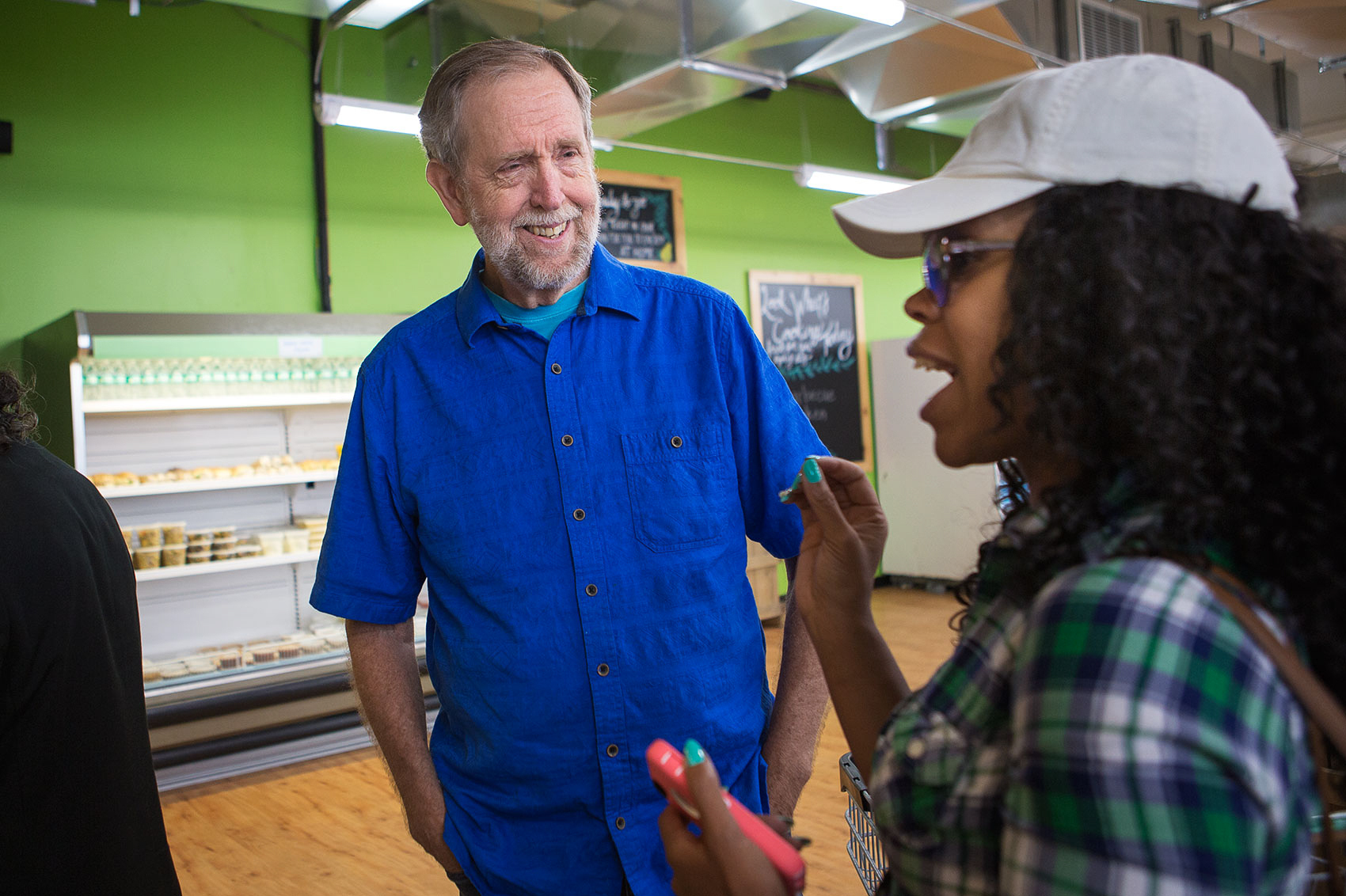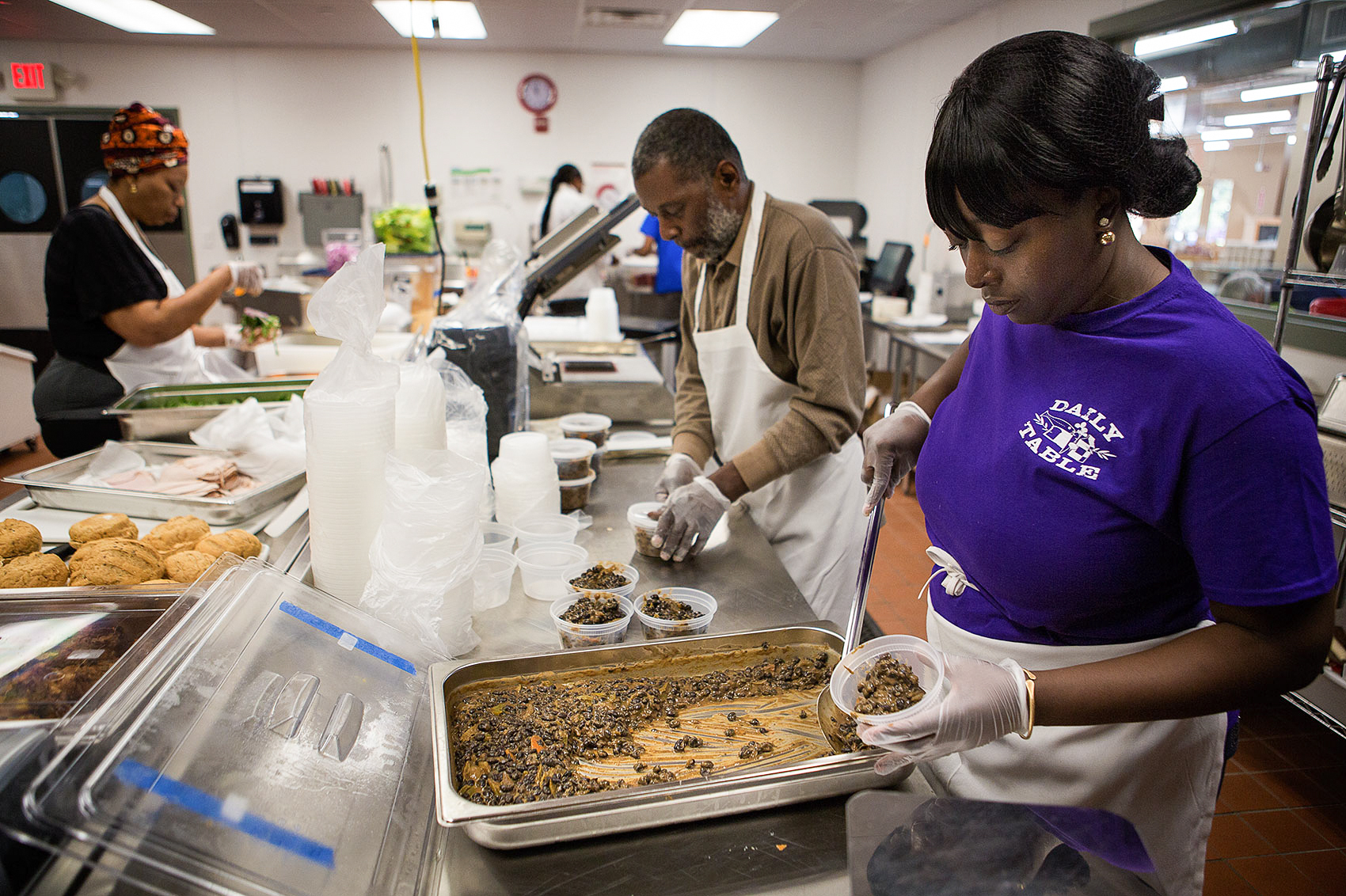Listen to the Story on All Things Considered:
Daily Table opened its doors Thursday with shelves full of surplus and aging food.
The nonprofit grocery store is in the low-to-middle income Boston neighborhood of Dorchester. It’s selling canned vegetables two for $1 and a dozen eggs for 99 cents. Potatoes are 49 cents a pound. Bananas are 29 cents a pound.
“That’s good. It’s cheap! Everything good,” says Noemi Sosa, a shopper marveling at the prices that — for Boston — are phenomenally low.
The reason these prices are so low? Most of the stock is donated by food wholesalers and markets. It either didn’t sell or it’s surplus.
Grocery stores like Trader Joe’s aren’t donating any food to Daily Table yet, but the plan is to get food from them eventually, too.
It was Doug Rauch, the former president of Trader Joe’s, who came up with this concept. He was frustrated by the amount of nutritious food that went into dumpsters, just because it was nearing its sell-by date. Meanwhile, millions of people don’t eat very well. But Rauch had to fight the critics, who said he was just dumping food rejected by rich people on the poor.

Rauch first announced he would open the store in September 2013.
“It’s been a long time coming,” he says.
Checking out with the cashier, customer Manuel Goncalves admits he surveyed the expiration dates before putting food in his basket.
“I looked around, I saw the date. I saw the food being prepared in the back,” he says. “And I felt comfortable to come back and buy as much as I can.
His groceries come to $30.46. “That’s it? Wow!” he says.
For just over $30, he walks out with what looks like enough groceries to feed his family for a week.
Besides selling staples, Daily Table is also cooking up prepared meals on a rotating menu. “The recipes have to change every day because the donations change every day,” says head chef Ismail Samad. Even though the food is not as new as what’s in your local supermarket, that doesn’t mean it’s bad, he says.

“The top of the kale might be getting a little light green. We cut that off and sauté it up,” he says.
Samad hopes customers in Dorchester eat it up. If they do, Rauch wants to expand this model to other cities across the country.
Copyright 2015 WBUR.
No comments:
Post a Comment